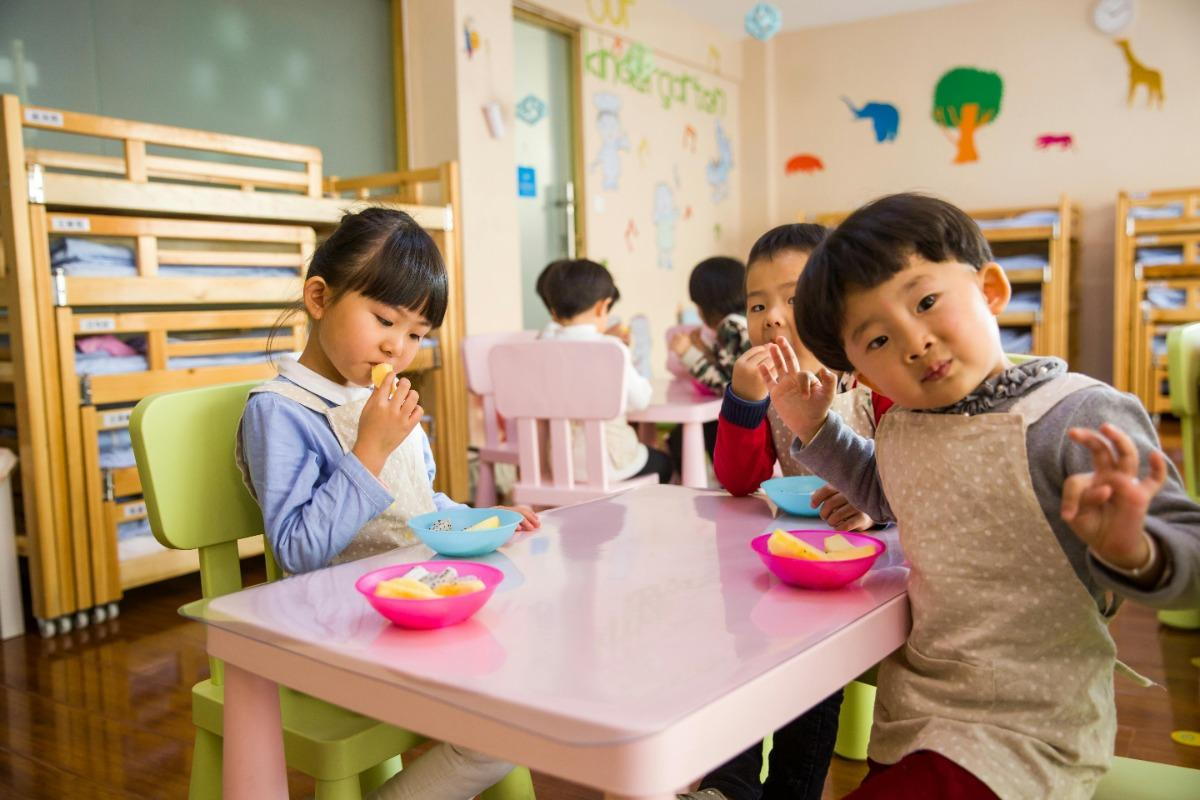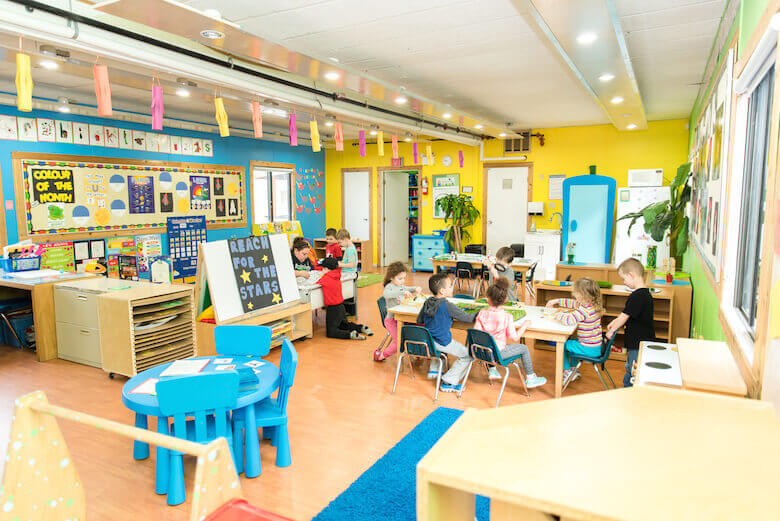How to Choose the Best Daycare for Infants Near Me: A Parent's Overview to Top quality Treatment
How to Choose the Best Daycare for Infants Near Me: A Parent's Overview to Top quality Treatment
Blog Article
Recognizing the Significance of Childcare for Your Young child's Social Advancement and Understanding Knowledge With Involving Tasks
The value of day care in forming a toddler's social growth and learning can not be overemphasized, as it uses an organized atmosphere filled with appealing activities that are crucial for very early growth. As we check out the complex advantages of daycare, one must think about exactly how these foundational experiences affect a kid's future social interactions and overall development.

Benefits of Social Interaction
Social interaction plays a critical role in the developing trajectory of kids, working as a foundation for vital social skills. Involving with peers enables toddlers to exercise communication, discover to share their feelings, and establish empathy. With shared play and participation, they begin to understand social norms, such as taking turns and sharing, which are essential elements of effective interpersonal relationships.
Furthermore, social interactions contribute to cognitive growth. As toddlers connect with their peers, they boost their language skills, broaden their vocabulary, and improve their capacity to verbalize feelings and ideas. This exchange of ideas cultivates critical reasoning, as youngsters find out to work out, solve issues, and browse disputes.
Additionally, social communication advertises psychological guideline. Exposure to various social situations aids young children acknowledge and handle their feelings, eventually leading to greater strength and versatility. The ability to create attachments and relationships likewise enhances their feeling of belonging and self-esteem, which are important for total wellness.
Importance of Engaging Tasks
Involving activities are essential for cultivating a revitalizing atmosphere that enhances kids' social growth. These tasks not just astound children's attention however also advertise energetic engagement, enabling them to explore their surroundings artistically. Through play-based discovering, young children create important skills such as analytical, collaboration, and compassion, all of which are critical for developing healthy relationships with peers.
Taking part in appealing activities, such as group video games, art projects, and interactive storytelling, urges kids to express their feelings and concepts. This expression is crucial for psychological knowledge and helps them comprehend the viewpoints of others. Moreover, when young children participate in these activities together, they learn to work out duties, share resources, and work together, which are basic elements of social interaction.
Furthermore, a well-structured setting that includes varied and stimulating activities aids in maintaining young children encouraged and concentrated. This motivation fosters a love for learning and exploration, laying the structure for future instructional experiences. Inevitably, involving tasks in childcare setups are critical in forming social abilities, preparing toddlers for successful communications beyond the classroom, and supporting their total advancement throughout these developmental years.
Developing Communication Abilities
Reliable interaction abilities are vital for kids as they navigate their very early social communications. In a childcare setup, children are subjected to varied social scenarios that encourage non-verbal and verbal communication. Involving in discussions with caretakers and peers fosters language advancement, enabling kids to share their needs, ideas, and emotions more efficiently.

Additionally, daycare settings give possibilities for kids to resemble and observe communication designs of their adults and peers. This empirical understanding is important as kids choose up on social cues, tone, and body language, which are necessary elements of efficient communication.
Fostering Freedom and Confidence
As young children improve their interaction abilities, they at the same time begin to discover their freedom and construct confidence in social settings (infant daycare near me). Daycare supplies an organized atmosphere where youngsters can take part in various tasks that motivate freedom. From choosing their very own activities to joining group tasks, these experiences equip kids to choose and share themselves
In a daycare setup, youngsters are usually offered with chances to resolve troubles separately, whether it's finding out how to share toys or settling conflicts with peers. This fosters important reasoning and promotes self-reliance. In addition, caregivers support this development by providing positive reinforcement and assistance, aiding find more information children to browse social communications with self-confidence.

Team activities, such as participating video games or joint art jobs, promote teamwork and instruct young children the value of working together. With these interactions, children learn to interact their ideas and sensations, even more enhancing their self-confidence and social abilities.
Ultimately, fostering self-reliance and confidence in childcare not just prepares kids for future social environments but likewise lays the foundation for a resilient mindset, equipping them with crucial life skills as they remain to find out and grow.
Building Lifelong Understanding Foundations
A strong structure for lifelong discovering is important for kids, as their early experiences shape their mindsets in the direction of education and curiosity. Daycare environments play a critical role in this developing stage by giving organized opportunities for expedition and involvement. Involving tasks, such as team play, crafts and arts, and interactive storytelling, boost cognitive development while motivating social communication.
With these experiences, toddlers discover necessary abilities such as analytical, communication, and participation. They are introduced to the idea of finding out as a delightful, collaborative procedure as opposed to a job, which cultivates a favorable attitude towards education. Additionally, direct exposure to diverse perspectives and peer interactions in childcare settings boosts psychological knowledge, promoting empathy and strength.
Caregivers and instructors additionally contribute dramatically to constructing this foundation by modeling inquisitiveness and enthusiasm for learning. By encouraging concerns and assisting in discussions, they produce an environment where children feel secure to reveal themselves and explore new ideas. Eventually, the combination of helpful relationships and interesting activities in day care settings lays the foundation for a long-lasting love of discovering, furnishing young children with the skills and attitude needed for future scholastic and individual success.
Conclusion

The value of daycare in forming a young child's social advancement and understanding can not be overemphasized, as it offers a structured anchor setting loaded with appealing activities that are crucial for very early growth.Social interaction plays an essential role in the developing trajectory of young children, serving as a structure for essential social abilities. When kids engage in these activities together, they discover to work out duties, share sources, and work together, which are fundamental facets of social interaction.
Ultimately, involving tasks weblink in daycare settings are crucial in forming social abilities, preparing kids for effective communications past the class, and nurturing their overall growth during these developmental years.
Inevitably, the advantages of engaging tasks in day care settings play a substantial duty in preparing kids for future social interactions and difficulties. baby daycare near me.
Report this page